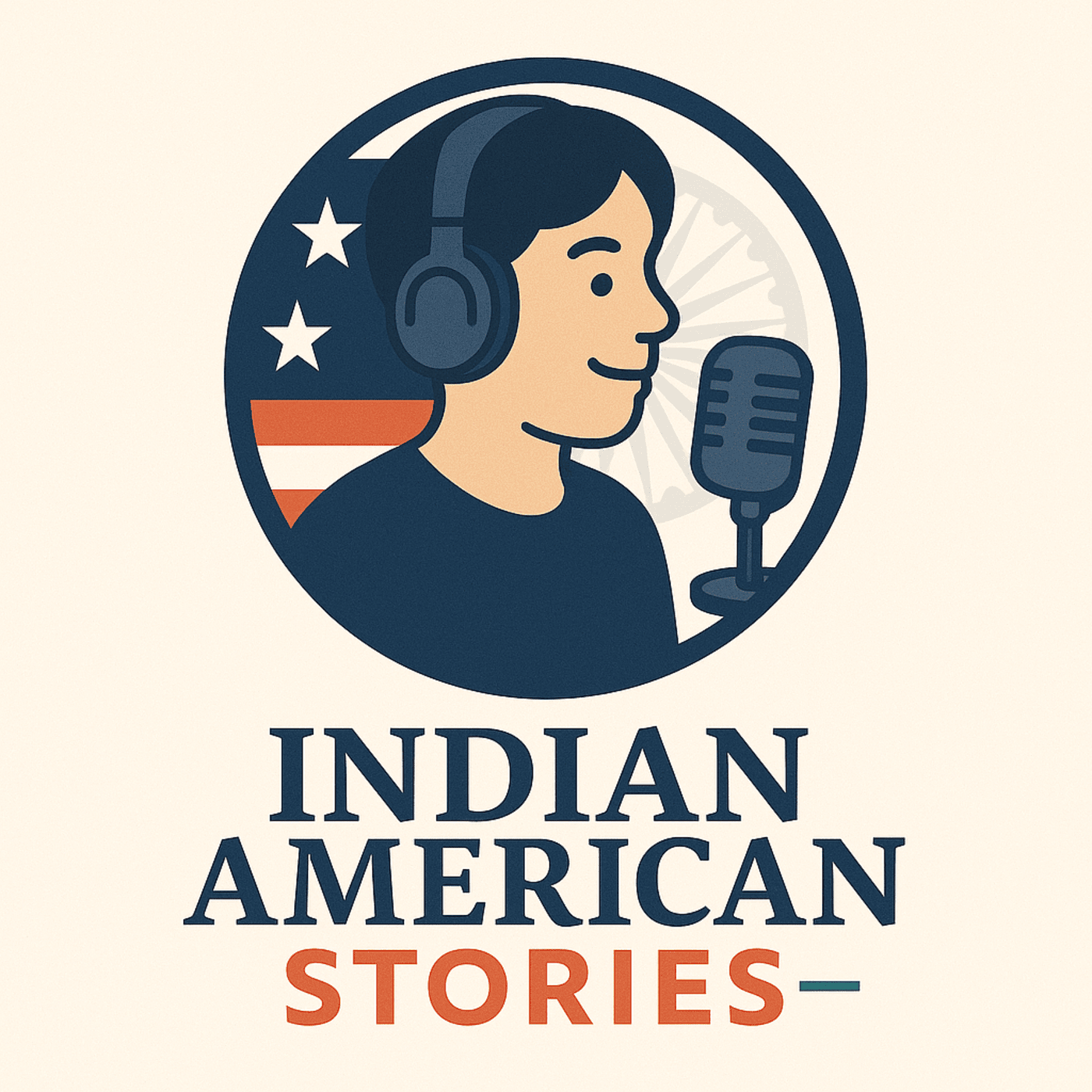Indian American Stories Podcast

Indian American Stories Podcast
Podcast Description
Indian American Stories shares honest, thoughtful conversations with Indian Americans about their lives, careers, and identities. Hosted by high school students, each episode explores the small moments and big decisions that shape who we are. You will love listening to these stories. indianamericanstories.substack.com
Podcast Insights
Content Themes
This podcast delves into themes of identity, cultural upbringing, and the challenges of balancing Indian and American experiences. Specific episodes highlight personal journeys, such as Dr. Neha Gupta's insights on medical career choices stemming from altruism, Dr. Nirav Pandya's growth in cultural pride while navigating adolescence, and Gagan Biyani's reflections on the immigrant experience and the concept of code-switching, all contributing to the exploration of what it means to be an Indian American.

Indian American Stories shares honest, thoughtful conversations with Indian Americans about their lives, careers, and identities. Hosted by high school students, each episode explores the small moments and big decisions that shape who we are. You will love listening to these stories.
About Dr. Rupa Badlani:
Dr. Rupa Badlani is a Bay Area native and a dermatologist at Kaiser Permanente Oakland. She grew up in the Berkeley Hills, went to Head-Royce for middle school, studied at UC Berkeley, went to UC Irvine for medical school, and did her dermatology residency at UCSF where she also served as chief resident. Now she lives in Orinda with her husband and their three kids. At work, she focuses on medical dermatology, everything from acne and eczema to melanoma and other skin cancers. Outside of work, most of her time goes into parenting, community, and staying connected to the people around her.
What was most fun about this conversation:
The most fun part was how normal and grounded she was about everything. She talked about being a doctor without making it sound dramatic or flashy. The way she described remembering details about her patients lives, asking about their kids, and getting life advice from people twice her age made the whole doctor patient relationship feel very human. I also liked hearing about her college experience at Berkeley and how overwhelming but freeing it was. The part about having no one wake you up for an 8 am class felt extremely real.
What I was inspired by:
I was really inspired by how much pride she takes in consistency. She is not chasing prestige anymore. She cares about showing up every day, doing good work, and building long term relationships with patients and with her kids. Her story about wanting to match into UCSF and her dad asking her “why not you” really stuck with me. It was not about arrogance. It was about not disqualifying yourself before you even try. That mindset feels powerful and also very practical.
What many of us Americans can relate with:
A lot of this conversation felt universal, even beyond the Indian American experience. Feeling more comfortable once you get to college and find people who look like you. Learning time management the hard way. Balancing work, family, and trying not to drop the ball on everything at once. Also the idea that your parents pushed you hard because they wanted stability for you, even if it felt rigid at the time. That tension between structure and freedom is something a lot of people grow up with.
What I will think more about:
I keep thinking about how culture changes with each generation. Dr. Badlani talked about how Indian culture naturally gets diluted over time and how now it takes intentional effort to pass it on to her kids. Things like Diwali presentations at school or cultural dances do not just happen automatically anymore. It made me think about what parts of culture are worth protecting and how much effort it actually takes to keep them alive without forcing them.
How this conversation connects to others on the podcast:
This episode connected to a lot of past conversations in interesting ways.
Like Dr. Nirav Pandya, Dr. Badlani talked about growing up in mostly white spaces and later finding comfort and confidence in more diverse environments.
Similar to Gagan Biyani, she spoke about learning independence in college and figuring things out without much hand holding.
Her emphasis on work ethic and education echoed what Dr. Neha Gupta talked about with immigrant parents setting high expectations without always explaining the emotional side of it.
Even her parenting approach felt aligned with other guests who talked about blending Indian structure with American flexibility instead of choosing one over the other.
Overall, this conversation felt like another piece of the same bigger story. Different careers, different personalities, but the same questions about identity, ambition, family, and what a good life actually looks like.
This is a public episode. If you would like to discuss this with other subscribers or get access to bonus episodes, visit indianamericanstories.substack.com

Disclaimer
This podcast’s information is provided for general reference and was obtained from publicly accessible sources. The Podcast Collaborative neither produces nor verifies the content, accuracy, or suitability of this podcast. Views and opinions belong solely to the podcast creators and guests.
For a complete disclaimer, please see our Full Disclaimer on the archive page. The Podcast Collaborative bears no responsibility for the podcast’s themes, language, or overall content. Listener discretion is advised. Read our Terms of Use and Privacy Policy for more details.